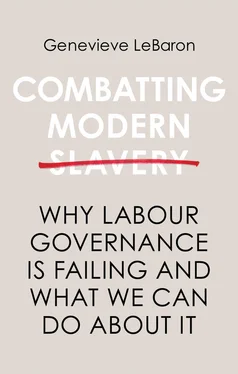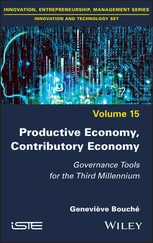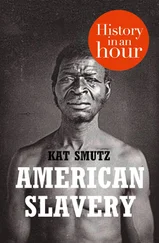1 Title page Combatting Modern Slavery Why Labour Governance Is Failing and What We Can Do About It Genevieve LeBaron polity
2 Copyright page
3 Acknowledgements
4 1 Who Does Labour Governance Work For?
5 2 Labour Exploitation in Global Supply Chains
6 3 Corporate Power and the State
7 4 The Recruitment Industry
8 5 The Enforcement Industry
9 6 Protecting Twenty-First-Century Workers
10 Index
11 End User License Agreement
1 Cover
2 Contents
3 1 Who Does Labour Governance Work For?
1 iii
2 iv
3 vi
4 vii
5 viii
6 ix
7 x
8 1
9 2
10 3
11 4
12 5
13 6
14 7
15 8
16 9
17 10
18 11
19 12
20 13
21 14
22 15
23 16
24 17
25 18
26 19
27 20
28 21
29 22
30 23
31 24
32 25
33 26
34 27
35 28
36 29
37 30
38 31
39 32
40 33
41 34
42 35
43 36
44 37
45 183
46 184
47 185
48 186
49 187
50 188
51 189
52 190
53 38
54 39
55 40
56 41
57 42
58 43
59 44
60 45
61 46
62 47
63 48
64 49
65 50
66 51
67 52
68 53
69 54
70 55
71 56
72 57
73 58
74 59
75 60
76 61
77 191
78 192
79 193
80 194
81 195
82 196
83 197
84 198
85 62
86 63
87 64
88 65
89 66
90 67
91 68
92 69
93 70
94 71
95 72
96 73
97 74
98 75
99 76
100 77
101 78
102 79
103 80
104 81
105 82
106 83
107 84
108 85
109 86
110 87
111 88
112 89
113 199
114 200
115 201
116 202
117 203
118 204
119 205
120 206
121 207
122 90
123 91
124 92
125 93
126 94
127 95
128 96
129 97
130 98
131 99
132 100
133 101
134 102
135 103
136 104
137 105
138 106
139 107
140 108
141 109
142 110
143 111
144 112
145 113
146 114
147 115
148 116
149 117
150 118
151 119
152 208
153 209
154 210
155 211
156 212
157 213
158 214
159 120
160 121
161 122
162 123
163 124
164 125
165 126
166 127
167 128
168 129
169 130
170 131
171 132
172 133
173 134
174 135
175 136
176 137
177 138
178 139
179 140
180 141
181 142
182 143
183 144
184 145
185 146
186 147
187 148
188 149
189 150
190 151
191 215
192 216
193 217
194 218
195 219
196 220
197 152
198 153
199 154
200 155
201 156
202 157
203 158
204 159
205 160
206 161
207 162
208 163
209 164
210 165
211 166
212 167
213 168
214 169
215 170
216 171
217 172
218 173
219 174
220 175
221 176
222 177
223 178
224 179
225 180
226 181
227 182
228 221
229 222
230 223
231 224
232 225
233 226
234 227
235 228
236 229
237 230
238 231
239 232
240 233
241 234
242 235
243 236
244 237
Combatting Modern Slavery
Why Labour Governance Is Failing and What We Can Do About It
Genevieve LeBaron
polity
Copyright © Genevieve LeBaron 2020
The right of Genevieve LeBaron to be identified as Author of this Work has been asserted in accordance with the UK Copyright, Designs and Patents Act 1988.
First published in 2020 by Polity Press
Polity Press
65 Bridge Street
Cambridge CB2 1UR, UK
Polity Press
101 Station Landing
Suite 300
Medford, MA 02155, USA
All rights reserved. Except for the quotation of short passages for the purpose of criticism and review, no part of this publication may be reproduced, stored in a retrieval system or transmitted, in any form or by any means, electronic, mechanical, photocopying, recording or otherwise, without the prior permission of the publisher.
ISBN-13: 978-1-5095-1366-6
ISBN-13: 978-1-5095-1367-3 (pb)
A catalogue record for this book is available from the British Library.
Library of Congress Cataloging-in-Publication Data
Names: LeBaron, Genevieve, author.
Title: Combatting modern slavery : why labour governance is failing and what we can do about it / Genevieve LeBaron.
Description: Cambridge, UK ; Medford, MA : Polity Press, 2020. | Includes bibliographical references and index. | Summary: “A compelling exposé of the failings of corporate anti-slavery initiatives”-- Provided by publisher.
Identifiers: LCCN 2020000089 (print) | LCCN 2020000090 (ebook) | ISBN 9781509513666 (hardback) | ISBN 9781509513673 (paperback) | ISBN 9781509513703 (epub)
Subjects: LCSH: Forced labor. | Slavery--Prevention. | Employee rights. | Labor laws and legislation.
Classification: LCC HD4871 .L43 2020 (print) | LCC HD4871 (ebook) | DDC 331.11/73--dc23
LC record available at https://lccn.loc.gov/2020000089
LC ebook record available at https://lccn.loc.gov/2020000090
Typeset in 11 on 13pt Sabon
by Fakenham Prepress Solutions, Fakenham, Norfolk NR21 8NL
Printed and bound in Great Britain by TJ International Limited
The publisher has used its best endeavours to ensure that the URLs for external websites referred to in this book are correct and active at the time of going to press. However, the publisher has no responsibility for the websites and can make no guarantee that a site will remain live or that the content is or will remain appropriate.
Every effort has been made to trace all copyright holders, but if any have been overlooked the publisher will be pleased to include any necessary credits in any subsequent reprint or edition.
For further information on Polity, visit our website: politybooks.com
While writing this book, I have benefited from dozens of conversations with colleagues and friends. My special thanks go to, in no particular order: Andrew Crane, David Blight, Tim Bartley, Janie Chuang, Luc Fransen, Jennifer Clapp, Daniel Mügge, Claire Cutler, Jane Lister, Ben Cashore, Elena Shih, Nicola Phillips, Vivek Soundararajan, Laura Spence, V. Spike Peterson, Jamie Peck, Michael Bloomfield, Peter Dauvergne, Mark Anner, John Hobson, Scott Nova and Brian Burgoon. Extra special thanks go to J. J. Rosenbaum for her detailed and incisive suggestions on a draft of Chapter 4, and Penelope Kyritsis and Tom Hunt for their excellent insights on a draft of the full manuscript. I am also grateful to two anonymous Polity reviewers for their helpful feedback.
My colleagues and friends at the Sheffield Political Economy Research Institute (SPERI), especially fellow members of our Corporations Reading Group, have made writing this book exciting and a less lonely task than it would have been otherwise. They helped me to sharpen ideas and tackle parts of the global economy that I wouldn’t otherwise have been bold enough to write about. Thanks especially to Andrew Gamble, Colin Hay, Andreas Rühmkorf, Michael Jacobs, Scott Lavery, Jon Gamu, Liam Stanley, Andrew Hindmoor, Tony Payne, Owen Parker, Natalie Langford, Ellie Gore, Remi Edwards, Ed Pemberton, Patrick Kaczmarczyk and Charline Sempéré. I feel lucky to have such wonderful colleagues who reciprocate my enthusiasm for researching labour and corporations.
Читать дальше












